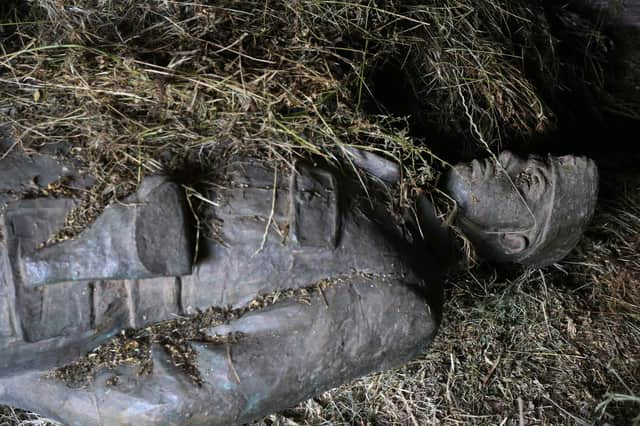As communism fell in Albania, an empty Coca-Cola can introduced envy and doubt among neighbours – Laura Waddell


This year it’s Bolla by Patjim Statovci, translated from Finnish by David Hackston, set in the city of Pristina during the Kosovan war. The lovers, an Albanian man and a Serbian man, catch one another’s eye in the street and begin an affair halted before long due to the outbreak of war.
This is no reheated Romeo and Juliet story, but a nuanced, wise look at what war does to people, particularly in how it captures one character’s hardened, benumbed acceptance of how his life has played out.
Advertisement
Hide AdAdvertisement
Hide AdWoven throughout are snippets of fable concerning the snake-like figure ‘bolla’ of the title; but it feels a little like decorative symbolic garnish on an otherwise meaty, impactful storyline.
My curiosity about Albania thus piqued, I ordered a copy of Free by Lea Ypi, a memoir of growing up there as communism started to crumble, in the years following the fall of the Berlin Wall.
I’d been meaning to read it since glimpsing its striking cover, featuring a photograph of a dark red rosebud propped up in a metallic red Coca-Cola can (hat-tip to designer Olga Kominek at Penguin Books imprint Allen Lane). I’m not far in, but was quickly hooked.
Among fascinating recollections of a young Ypi trying to get her head around her country’s ideological shift are surreal and revealing moments from everyday domestic life.
Telling an anecdote about a Coca-Cola can, just like the one on the cover, she writes: “They were markers of social status; if people happened to own a can, they would show it off by exhibiting it in their living rooms, usually on an embroidered tablecloth over the television or the radio, often right next to the photo of Enver Hoxha.”
Ypi’s mother had purchased the can in question, empty, from a teacher coworker. But before long it was stolen from their house. “Without the Coca-Cola can, our houses looked the same. They were painted the same colour; they had the same furniture. With the Coca-Cola can, something changed, and not just visually. Envy came between us. Doubts started to emerge.”
There’s a whole world reflected in these details.
Comments
Want to join the conversation? Please or to comment on this article.

